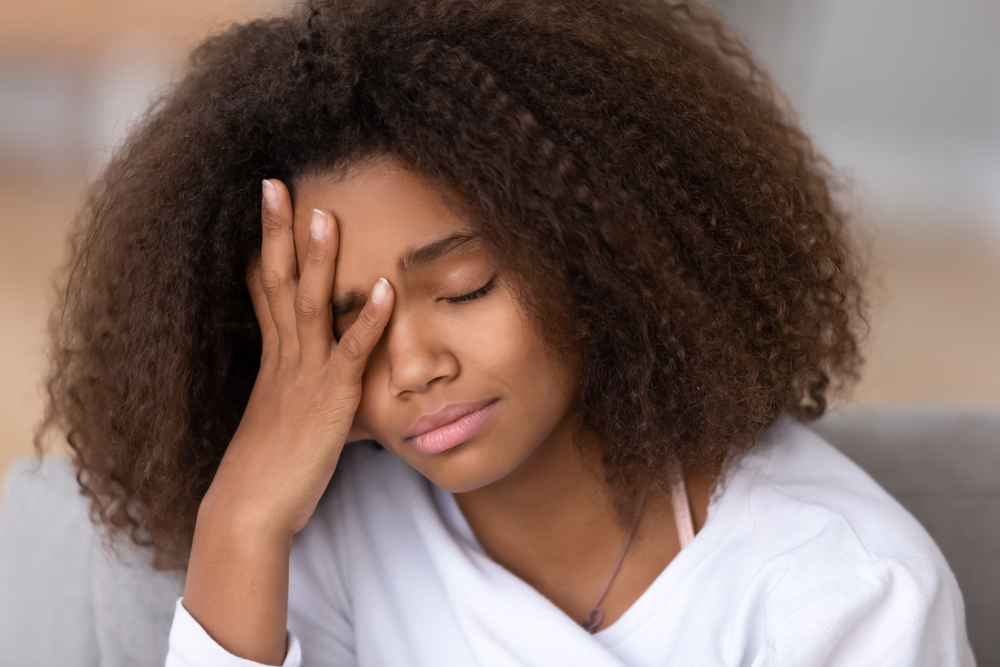
How much sleep do teenagers need?
The average teen needs about 8 to 10 hours of sleep every night to feel alert and perform at their best during their waking hours. But because their bodies are biologically programmed to stay up late, it can be difficult for them to get the sleep they need on a routine basis. Add to that the growing list of demands on their time such as school work, screen time, social media and friends; it’s not surprising that teens are at such high risk for sleep deprivation.
According to the latest figures from the Office of National Statistics (2021), 38% of 11 to 16 year olds and 57% of 17 to 23 year olds were affected by sleep problems on three or more nights a week.
What’s the impact of lack of sleep on your teenager?
We know from the ever growing body of evidence the impact poor sleep is having on young bodies and minds.
- Research shows that ‘night owl,’ teenagers who prefer to go to bed late but have to get up early for school, have a higher waist circumference and greater abdominal fat deposition (adiposity) than the ‘morning larks,’ those who prefer to go to bed early and get up early to begin their day.
- Recent studies have considerably clarified the relationship between lack of sleep on young people’s mood, emotion regulation, planning, decision making judgement and moderation of social behaviours.
- Young people who are not sleeping well are more vulnerable to sensation seeking behaviours, substance abuse, oppositional behaviour, moodiness, irritability and anxiety.
Why has your teen become a Night Owl
Teenagers naturally fall asleep later and wake later in the day. You might find it frustrating that your 13 year old turns the alarm clock off in the morning to try and glean an extra hours sleep leaving them seconds to get ready before they rush out the door, but remember that most teens’ natural sleep cycle puts them in conflict with school start times.
By measuring the presence of melatonin in teenagers’ saliva at different times of the day, we know melatonin levels rise later at night in teenagers-usually about 11.00pm- and remain at a higher level later in the morning. This natural shift in melatonin production, known as a phased delay, means your teen may seem full of energy in the evening and struggle to get to sleep, then can’t get up in time for school and seems sluggish and sleepy in the morning.
Teens Sleep-Wake Cycle- delayed melatonin production
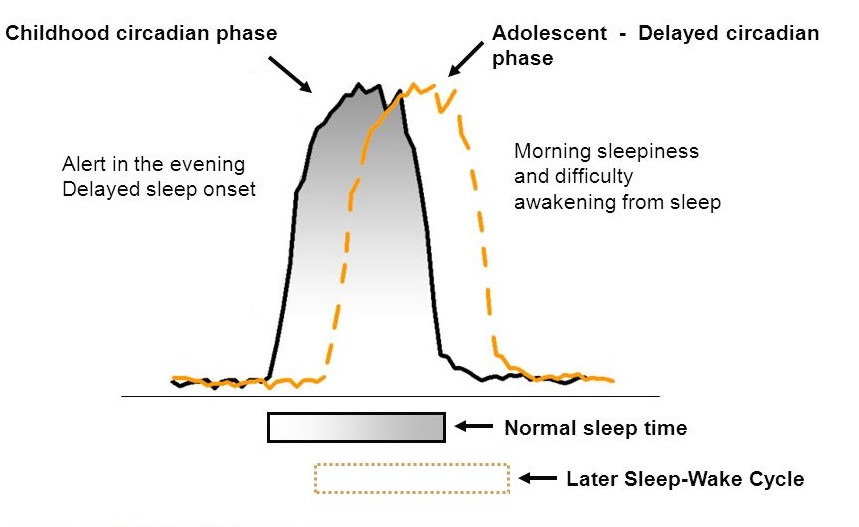
2006 American Academy of Sleep Medicine
Researchers at Oxford University are exploring the benefits of later school start times, as studies have found that when teens start school later:
- They sleep longer.
- Surprisingly they don’t stay up as late at night when their school start times change.
- They perform better and get higher grades.
- Fewer students seek help from counsellors and nurses.
- Sick days and tardiness decrease.
- Parents’ report their teenagers are easier to live with and more connected at home.
- Car accidents among teen drivers drop significantly.
What can you do to help your teen?
We know that to help our children reach their best potential and for them to lead healthy and happy lives, the best thing we can do is to help them improve their sleep.
So how can you work with these developmental changes and help your young person plan their time and make healthy life choices in a world where sleep seems a low priority?
- Educate yourself about sleep. One of the most important ways you can help your teen sleep better is to understand why sleep is so important; research has shown the more we understand about sleep, the more sleep we will have.
- Explore ways to help them and how you can make sleep a lifestyle priority for the whole family, so you act as a good example to your teen.
- Encourage your teen to have a consistent regular sleeping pattern throughout the week and weekend. Studies have shown where there are parent-set bedtimes during the week children had earlier bedtimes, gained more sleep and had improved daytime functioning.
- Discuss a bedtime and waking time that they feel is reasonable and that allows them to get the right amount of sleep each night.
- At the weekends they can enjoy a lie-in, however it’s best to cap it at an hour extra to help keep their body clock on track. Sleeping in too long or too late in the day is likely to affect the following night’s bedtime and shift their body clock later. Many teens use the weekend to try to catch up their accrued sleep debt. They may be interested to know a sleep debt can never be fully paid back and if a large debt has built up over the week, a weekend is not long enough to rebalance the lack of sleep. Sleeping in at the weekend will also just reinforce the shift in their body clock and they are more likely to continue to feel jet-lagged, groggy and exhausted.
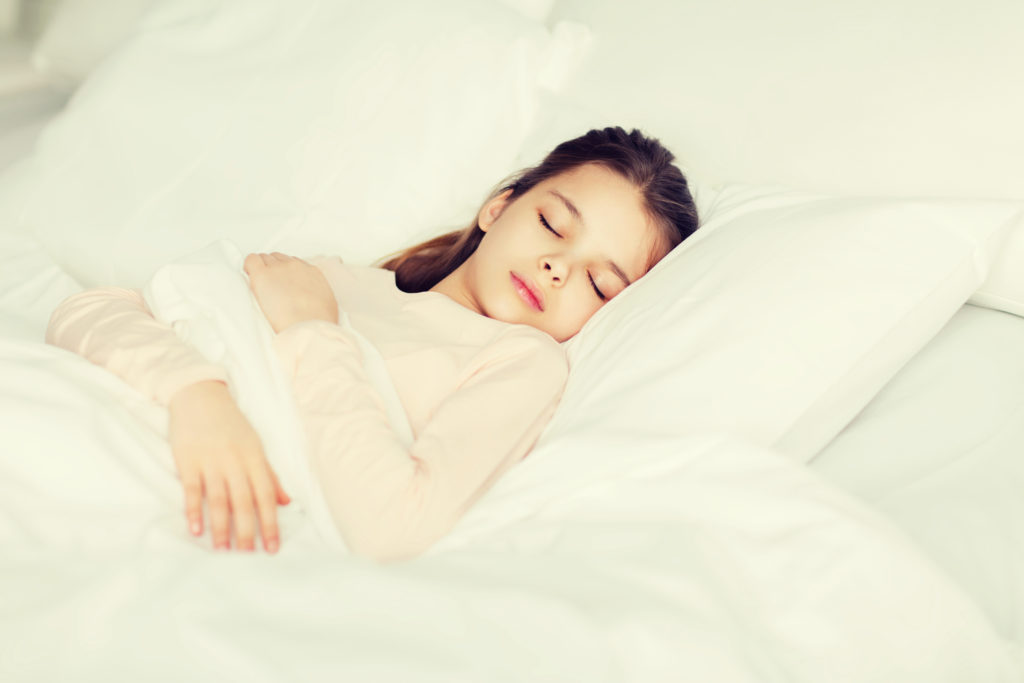
- To help keep your teen’s body clock on track, lights dim in the evening but in the morning open the curtains to let the light.
- Scientific research shows that screens have a direct impact on sleep. Negotiate when screen time is going to end, bearing in mind screens need to be off an hour before sleep. You may need to have a family rule of no phones in bedrooms.
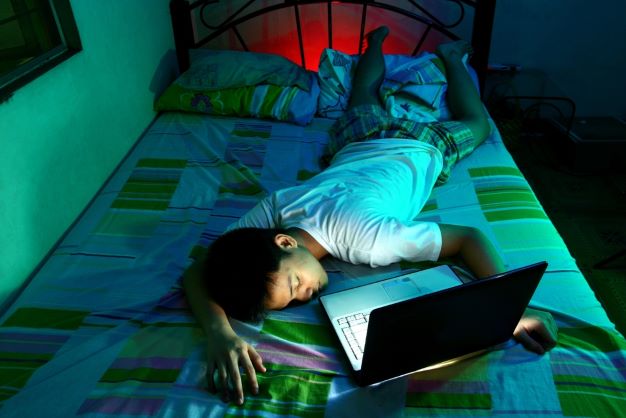
- Negotiate a cut-off time for gaming and films; not only will the light from devices impact melatonin production but your teen’s brain also needs time to relax and calm before bed.
- Encourage your young person to have more exercise in the day. Think of alternative types of exercise such as yoga. Think outside the box and consider meditation with them. This has been proven to improve the length and quality of sleep.
- Avoid any caffeine drinks from 5.00pm; caffeine has a half life of 5 hours and could interfere with your teen’s sleep on-set.

- Encourage them to do homework earlier in the evening. The bonus is they will be able to relax and have their own time once it’s all done.
- It’s best to avoid discussions or arguments with your teen just before bedtime. If they have particular concerns they want to go through with you it’s best to do this 1:1 in a quiet room before they start getting ready for bed. Having these conversations once they are in bed is likely to prevent them falling asleep.
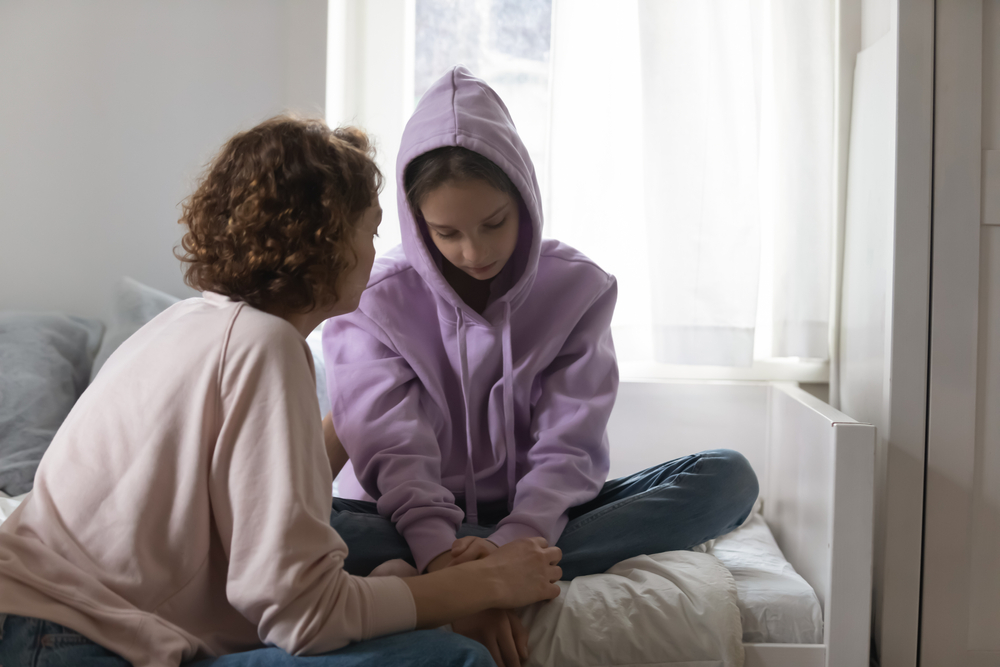
- Have a warm bath before bed. This will help trigger melatonin and relax your teen (and the added bonus of extra time in the morning)
- Rather than screens encourage them to read a book before lights out.
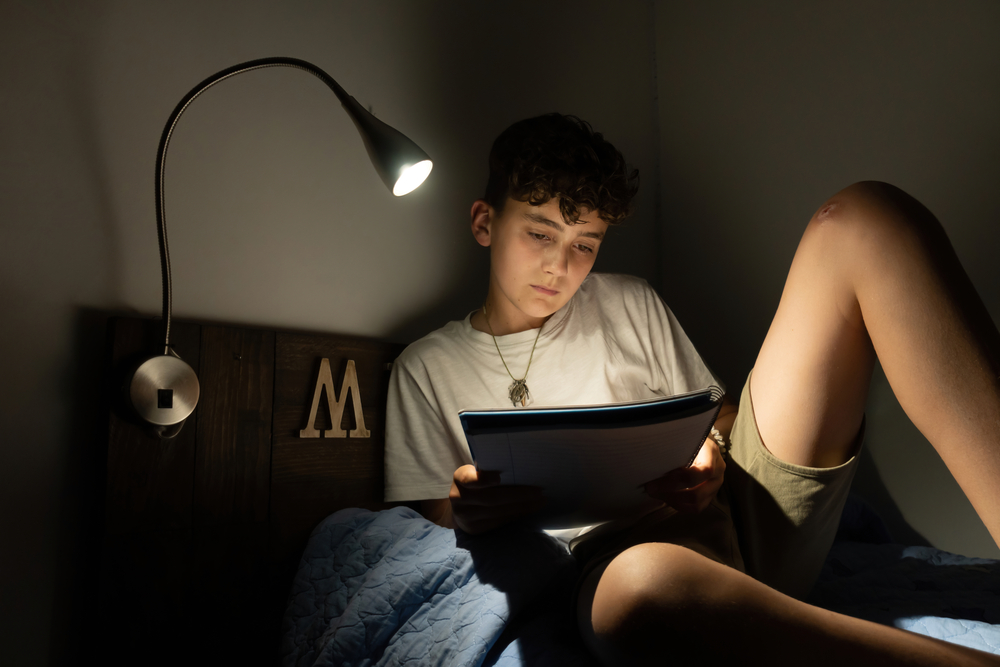
- Try suggesting they keep a diary or to-do lists. Jotting down notes before sleep, means they’ll be less likely to stay awake worrying or stressing.
- And if they must nap, they should keep it to under an hour.
This article was written by Mandy Gurney- RGN. RM. Dip HV.
Founder Millpond Sleep Clinic
0 Comments